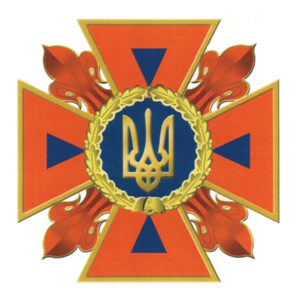
The US Mercury Bank has amended its policy, according to which it refuses to service accounts of legal entities whose founders are located in Ukraine, according to a message released by Mercury on social networks.
“While Ukraine is not subject to comprehensive sanctions, several regions of Ukraine have been sanctioned. We have previously utilized a regional model to support as many customers in Ukraine as possible; however, maintaining this policy while meeting our strict compliance standards has become increasingly challenging. We will continue to review this policy and hope to be able to modify it in the future,” the bank said in a statement to a client inquiry.
In Mercury clarified that the initial message that the bank refuses to serve and companies with founders with Ukrainian passport residing in the U.S., was erroneous.
On July 22, Petcube CEO Yaroslav Azhnyuk reported about the receipt of such a letter refusing to open accounts for applicants with passports of such countries as Belarus, Cuba, Iran, North Korea, Russia, Syria, Ukraine, Venezuela, regardless of their physical location. According to him, Ukrainian customers will have full access to their accounts until August 6, and already on August 13 their accounts will be closed.
However, in comments to the post, users published a screenshot of Mercury’s response on Linkedin, where the bank points out an error in its own statement, and says that these restrictions do not apply to Ukrainians living in the United States.
“We have always allowed (and continue to allow) customers with Ukrainian passports based in the US to use Mercury – we simply cannot support companies with founders based in Ukraine today. We apologize for the confusion caused by this error”, – stated in the message.
In turn, the Ukrainian ambassador to the United States, Oksana Markarova, reacted to the situation by asking to forward to her Mercury Bank’s letters to Ukrainian clients with permission to explain the situation.

Ukrainian Foreign Minister Dmytro Kuleba is making the first visit by a Ukrainian official to China since the beginning of Russia’s full-scale aggression against Ukraine.
“Hello to all from China. Following up on the contacts between the leaders of Ukraine Volodymyr Zelensky and China’s Xi Jinping, I am carrying out the first visit of a Ukrainian official to China since the beginning of Russia’s full-scale aggression against Ukraine. This is also the first bilateral visit of the Ukrainian foreign minister to China since 2012,” he said on his Instagram.
He informed that ahead – detailed, substantive talks with his Chinese counterpart Wang Yi on ways to a just peace.
“Must avoid competition of peace plans. It is very important that Kiev and Beijing have a direct dialog and exchange of positions. We will also discuss bilateral relations. I am convinced: after Ukraine started negotiations on accession to the European Union, China should look at relations with our state through the prism of its strategic relations with Europe,” – said Kuleba.
As reported, July 23-25, Kuleba will pay a visit to China at the invitation of Chinese Foreign Minister Wang Yi.

Ukrainian enterprises, according to the customs authorities, in January-June this year reduced imports of lead and lead products by 3.9% – to $560 thousand (in June – $137 thousand).
Exports of lead and lead products decreased by 30.8% over the reporting period – to $5.404 million (in June – $1.070 million),
The main use of lead is in the production of lead-acid batteries for the automotive industry. In addition, lead is used to make bullets and some alloys.

Over the past weekend in the water bodies of Ukraine killed 66 people, including 10 children, reported the State Service of Ukraine for Emergency Situations (SSES).
“66 people, among them 10 children, died on the water bodies of Ukraine over the past weekend. Fortunately, 11 people, including 4 children, managed to save. In general, since the beginning of 2024 on water bodies of Ukraine killed 672 people, including 76 children,” – reported in the Telegram channel on Monday.
It is noted that the most victims were found in Kyiv, Cherkasy and Dnipropetrovsk regions.
The State Emergency Service urges citizens to be careful while vacationing near water: to assess their physical capabilities, to choose only places adapted for swimming, not to swim too far, especially in unfamiliar bodies of water and to keep an eye on children.

UNITED NATIONS — The U.N. General Assembly adopted a resolution Thursday demanding that Russia urgently withdraw its military and personnel from Europe’s largest nuclear power plant and immediately return the facility to Ukraine.
The resolution also reiterates the assembly’s demands for Russia to immediately “cease its aggression against Ukraine” and withdraw all troops, and again reaffirms the 193-member world body’s commitment to Ukraine’s “sovereignty, independence, unity and territorial integrity.”
The resolution was approved by a vote of 99-9 with 60 countries abstaining and 25 countries not voting.
Russia was joined by Belarus, Cuba, Eritrea, Mali, Nicaragua, Syria, Burundi and North Korea in opposing the resolution. China, India, South Africa and many Middle Eastern countries were among those abstaining.
The resolution expresses “grave concern over the precarious nuclear safety and security situation at the Zaporizhzhia nuclear power plant.” It says returning the plant to Ukraine’s full control will ensure its safety and security and enable the International Atomic Energy Agency “to conduct safe, efficient and effective safeguards.”
Fears of a nuclear catastrophe have been at the forefront since Russian troops occupied the plant shortly after invading Ukraine in February 2022. Zaporizhzhia, which has six nuclear reactors, sits in Russian-controlled territory in southeastern Ukraine near the front lines and has been continually caught in crossfire.
Read More: Ukraine Is Preparing for Russia to Sabotage Europe’s Biggest Nuclear Plant
The IAEA has repeatedly expressed alarm about cuts to Zaporizhzhia’s electricity, which is crucial for the plant’s operation, and the plants’ supply issues. Without attributing blame, IAEA Director General Rafael Mariano Grossi told the U.N. Security Council on April 15 that his agency had confirmed three attacks against Zaporizhzhia since April 7.
Both Ukraine and Russia have regularly accused the other of attacking the plant, and the accusations continued on Thursday.
Ukraine’s U.N. ambassador Sergiy Kyslytsya introduced the resolution, telling the General Assembly that Russia “continues to violate key principles of technological and physical nuclear security” and continues to attack the plant.
Ukraine and neighboring countries suffered “the disastrous consequences” of the nuclear explosion at the Chernobyl plant in 1986, he said, but the repercussions of a possible incident at Zaporizhzhia “which has been deliberately turned into a key component for the military strategy of Russia would be even more catastrophic.”
Kyslytsya warned that “if we simply stand with our arms crossed, that good luck will not last forever, and an incident will be inevitable.”
“Nuclear security and protection depend on our ability to adopt a strong and common stance on the inadmissibility of the continued occupation and militarization of the Zaporizhzhia nuclear power plant,” the Ukrainian ambassador said.
Russia’s deputy U.N. ambassador Dmitry Polyansky accused Ukraine and its Western supporters of trying to push through the resolution with the real goal of getting the General Assembly’s “blessing” for the outcome of last month’s Ukraine peace conference in Switzerland and “sneaking in political elements.”
In the conference communique, nearly 80 countries called for the “territorial integrity” of Ukraine to be the basis for any peace agreement to end the war. It also said Zaporizhzhia and other nuclear plants must remain under Ukrainian control in line with IAEA principles.
Polyansky accused the communique’s supporters of trying “to promote the false Western narrative about the source of threats to nuclear facilities in Ukraine.” He claimed that the only threat to nuclear facilities in Ukraine today is from Kyiv’s “regular, reckless attacks on the Zaporizhzhia nuclear power plant,” its related infrastructure, and the nearby city where plant employees and their families live.
https://time.com/6997689/un-zaporizhzhia-nuclear-power-plant-russia-ukraine/

Ukraine in January-June this year increased exports of semi-finished carbon steel products in physical terms by 61.6% compared to the same period last year – up to 888.016 thousand tons.
According to statistics released by the State Customs Service (SCS) on Tuesday, in monetary terms, exports of semi-finished carbon steel products increased by 47.3% to $439.909 million.
The main exports were to Bulgaria (35.49% of shipments in monetary terms), Poland (11.74%) and Italy (8.56%).
In January-June 2024 Ukraine imported from Egypt 5 tons of semi-finished products worth $5 thousand, while in January-June 2023 it imported from China 72 tons of semi-finished products worth $133 thousand.
As reported, Ukraine in 2023 reduced exports of semi-finished carbon steel products in physical terms by 36.7% compared to 2022 – to 1 million 203.454 thousand tons, exports in monetary terms decreased by 48.9% to $608.516 million. The main exports were to Bulgaria (36.66% of supplies in monetary terms), Poland (23.01%) and Italy (9.60%).
In addition, in 2023 Ukraine imported 96 tons of semi-finished steel products from China (98.26%) and Turkey (1.74%) for the amount of $172 thousand.